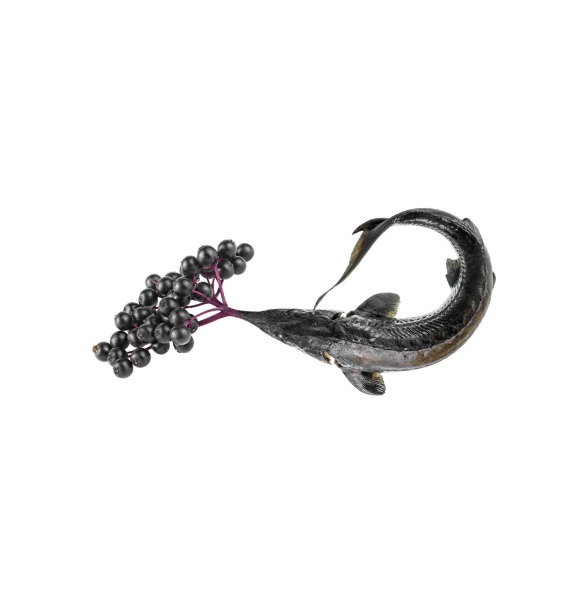News
Ángel León: “It’s time to start dreaming about kitchen gardens in the sea”
.jpg)
The Chef from Aponiente*** (El Puerto de Santa María) displays the work he has carried out sowing Zostera (seagrass), a plant that grows in the sea which “can replace land cereal with the environmental and sustainable benefits that this entails”.
Ángel León continues his quest to make the most of the huge larder formed by the sea and to add new produce and food items to the human diet, and he has taken advantage of Madrid Fusión Alimentos de España 2021 to talk about the results of his latest research: marine cereal. “The dream we have at Aponiente is to try and find proteins in the sea, and we have now found cereals based on marine Zostera”, a plant that he has been growing for three years in the Bay of Cádiz. Its cultivation has now been approved by the United Nations Food and Agriculture Organization (FAO) “and may revolutionise the future if we manage to domesticate it, due to its properties and because it can be produced without using fresh water”, he explained.
Ecologically, Zostera is “a real eye opener” because many species of fish spawn in it, because it reinforces the terrain and because it provides a significant amount of oxygen that may help to fight against climate change. According to the Environmental coordinator at Aponiente, Juan Martín, who accompanied León at the presentation sponsored by the Department of Agriculture, Livestock, Fishing and Sustainable Development of the Autonomous Government of Andalusia, a grain of Zostera has twice as much protein as rice, three times the carbohydrates or fibre, has vitamin A, lipids, Omega-3 and “on top of all that it has no gluten and doesn’t contain any salt. And it’s good for diabetics”. “A fantastic foodstuff”, the chef concluded.
The rice and flour that they have obtained form part of the dishes in the new season at Aponiente “but the challenge now consists of managing to domesticate and expand their production, and contribute to the health of the planet through gastronomy. Being able to irrigate a cereal with sea water without using pesticides is really nice”, they said. ”We’d like to have a seed bank and sow them in different places, for example in Morocco and North Africa. It’s an incredible opportunity”, as you can obtain more than 3,500 kilos of grains per marine hectare.
Ham and Shoulder from the sea
Another of the star projects in León’s presentation was the one with sea ham, which highlights Almadraba tuna bellies. “This ham, which we have worked on a lot especially in the curing process in order to achieve the perfect degree of ageing, provides us with the chance to complete the work carried out at Aponiente with marine cold cuts”, the chef from Cadiz explained.
The chef rounded off the presentation by making a snack with a pancake base prepared with marine rice, on which he placed various slices of finely-chopped marine ham and a bit of marine honey. “It’s a sea snack. There’s not much more to say”. “Everything still remains to be written about the sea. After 15 years, we are still really enthusiastic and some important discoveries are just around the corner. It’s time to start dreaming about kitchen gardens in the sea”.

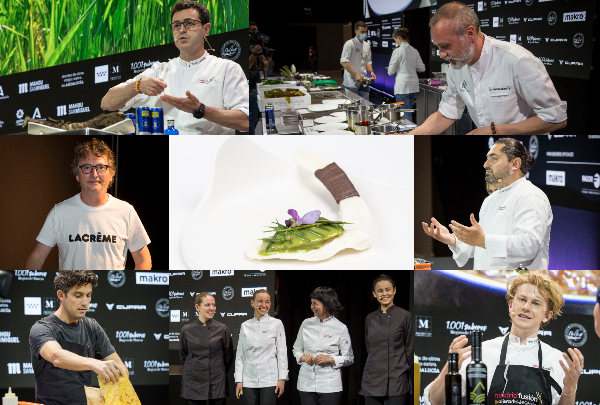
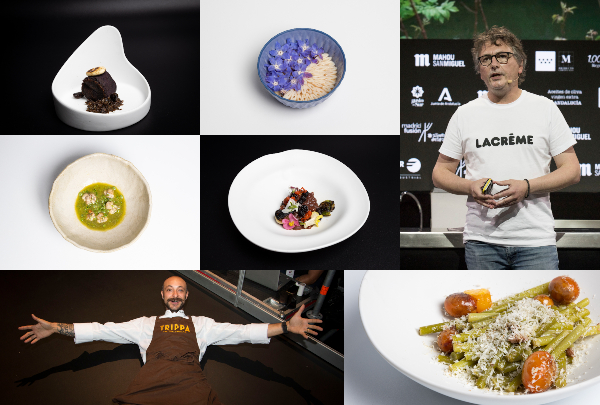
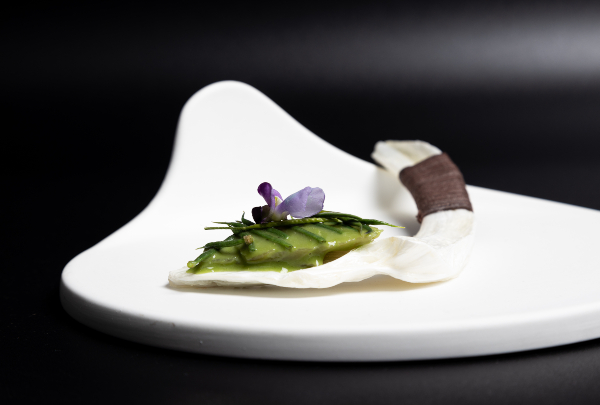
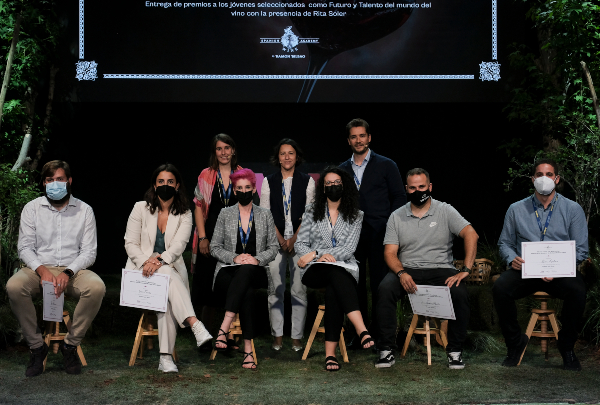
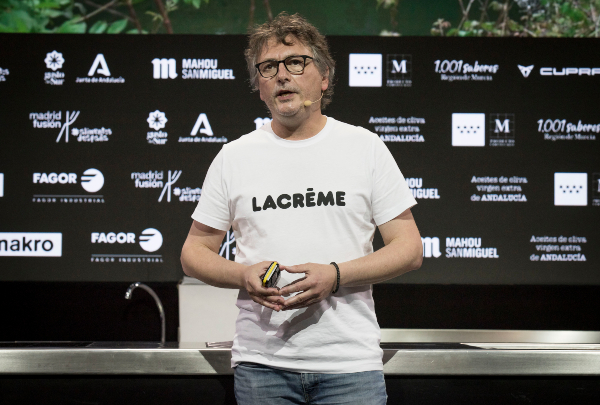
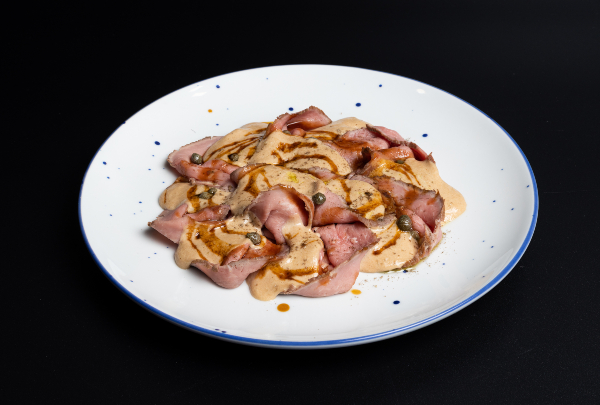
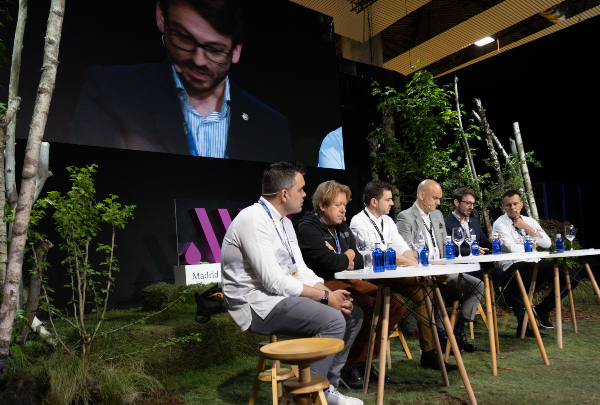
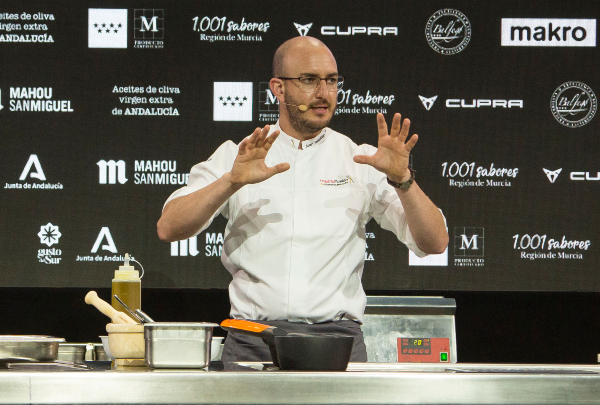
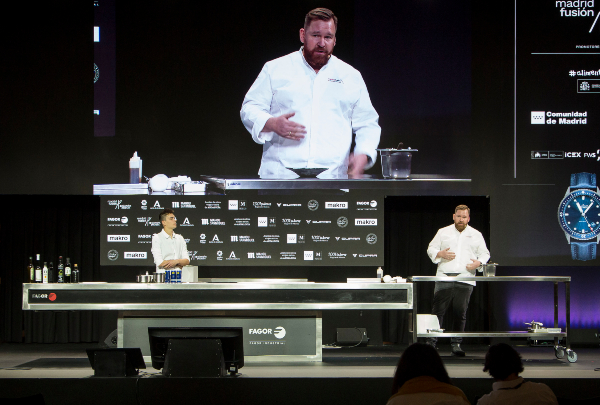
.jpg)
